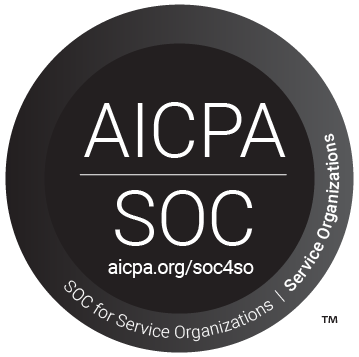Introduction: The Growing Need for IT Support in Healthcare
Managed IT services for healthcare are becoming more important than ever. As hospitals, clinics, and medical offices rely more on technology, they face new challenges—like keeping patient data safe, following strict rules, and making sure systems work smoothly every day.
These services help healthcare organizations handle their technology without the stress—or the cost of hiring more full-time IT staff. With a managed IT partner, you can expand your team’s capabilities and get expert support when you need it, without adding to your payroll.
From protecting sensitive records to supporting remote staff, managed IT providers make sure everything runs securely and efficiently. If your healthcare team is feeling overwhelmed by IT issues, it might be time to explore a smarter, more reliable solution.
Managing the Explosion of Healthcare Data
 Healthcare organizations deal with a huge amount of data every day—patient records, lab results, insurance forms, and more. As this data grows, so does the need to store it safely, access it quickly, and share it securely with the right people.
Healthcare organizations deal with a huge amount of data every day—patient records, lab results, insurance forms, and more. As this data grows, so does the need to store it safely, access it quickly, and share it securely with the right people.
Managed IT services for healthcare help make this easier. Instead of relying on outdated systems or overworked staff, a managed IT provider can organize your data, keep it protected, and make sure it’s available when you need it. This means fewer delays, better communication between providers, and more time focused on patient care.
With the right support, your team doesn’t have to worry about where data is stored or how to find it. Everything works behind the scenes—securely and smoothly.
Cloud Hosting and Secure Collaboration
All departments and teams in healthcare need to share information quickly and safely—whether they’re in the same building or spread across multiple locations. That’s where cloud hosting comes in. It allows providers to store data online, making it easy to access from anywhere, anytime.
Still, many healthcare organizations continue to rely on on-premises systems. These setups can feel more familiar and offer a sense of control, especially when it comes to sensitive patient data. But they also come with challenges—like higher maintenance costs, limited scalability, and more pressure on internal IT teams.
Managed IT services for healthcare help bridge the gap. Whether you’re staying on-premises, moving to the cloud, or using a hybrid approach, a managed IT provider can guide the transition and ensure everything stays secure and compliant. They help reduce the fear of losing control by offering visibility, support, and strong protections every step of the way.
With the right setup, doctors and staff can work together in real time, share patient records, and update charts without worrying about data leaks or system crashes. This kind of secure collaboration improves care, reduces delays, and keeps everyone on the same page—no matter where they’re working.
HIPAA Compliance and Regulatory Support
 As you well know, healthcare providers must follow strict rules to protect patient information. One of the most important is HIPAA—the Health Insurance Portability and Accountability Act. It sets the standards for how medical data should be stored, shared, and protected.
As you well know, healthcare providers must follow strict rules to protect patient information. One of the most important is HIPAA—the Health Insurance Portability and Accountability Act. It sets the standards for how medical data should be stored, shared, and protected.
Managed IT services for healthcare help you stay compliant without the stress. A good IT partner will make sure your systems meet HIPAA requirements, from secure logins and data encryption to regular audits and access controls. They also help you keep up with changing regulations, so you’re never caught off guard.
With expert support, you can focus on patient care—knowing your technology is set up to meet the rules and keep your data safe.
Cybersecurity: Protecting Patient Data
Cyberattacks on healthcare organizations are on the rise. Hackers target hospitals and clinics because they know patient data is valuable—and often not well protected. A single breach can lead to serious problems, including lost records, legal trouble, and damage to your reputation.
Managed IT services for healthcare include strong cybersecurity tools to keep your systems safe. These often include:
- 24/7 system monitoring to detect and respond to threats in real time
- Multi-factor authentication (MFA) for added protection against unauthorized access
- Firewalls and antivirus software to block known threats
- Regular vulnerability scans and prompt security patching
- Endpoint protection for mobile devices, laptops, and desktops
- Email filtering and phishing prevention training for staff
- Secure backup and recovery in case of ransomware attacks
- Access to a Virtual Chief Information Security Officer (vCISO) for expert strategy
With this kind of support, you can feel confident that your data—and your patients—are protected.
Disaster Recovery and Business Continuity
In healthcare, even a short system outage can cause big problems and a ripple-effect throughout the organization—missed appointments, delayed treatments, or lost access to patient records. That’s why it’s so important to have a plan in place if something goes wrong.
Managed IT services for healthcare include disaster recovery and business continuity solutions. This means your data is backed up regularly, often in secure off-site locations, and your systems can be restored quickly if there’s a cyberattack, power outage, or hardware failure.
With the right support, your team can keep working—even during a crisis. That means better care for patients and less stress for your staff.
Refocusing Internal Teams on Patient Care
 Healthcare staff already have enough on their plates—caring for patients, managing schedules, and keeping up with paperwork. When IT problems pop up, they can slow everything down and pull attention away from what matters most.
Healthcare staff already have enough on their plates—caring for patients, managing schedules, and keeping up with paperwork. When IT problems pop up, they can slow everything down and pull attention away from what matters most.
Managed IT services for healthcare take that pressure off your team. Instead of trying to fix tech issues themselves or wait for outside help, your staff can rely on a dedicated IT partner to handle everything behind the scenes. That means fewer disruptions, faster solutions, and more time spent helping patients.
With the right support, your team can stay focused on care—not computers.
24/7 Support and Proactive Monitoring
Healthcare organizations don’t stop—and neither should your IT support. As you know, problems can happen at any time, and waiting until morning to fix them isn’t always an option.
Managed IT services for healthcare include round-the-clock support and proactive monitoring. That means your systems are watched 24/7, and issues are often fixed before you even notice them. If something does go wrong, help is just a phone call away—day or night.
This kind of support keeps your team running smoothly and helps avoid costly downtime. It’s peace of mind, knowing someone is always looking out for your technology.
Scalability for Growing Healthcare Organizations
As your healthcare organization grows—adding new locations, hiring more staff, or expanding services—your technology needs to grow with it. But scaling up can be tricky if your systems aren’t built to handle more users, devices, or data.
Managed IT services for healthcare make scaling simple. Whether you’re opening a new clinic or adding remote workers, your IT provider can adjust your systems to fit your needs. You won’t have to worry about buying new servers, setting up networks, or hiring extra IT staff.
With flexible support and expert planning, your technology can grow as fast as you do—without slowing you down.
Integration with UCaaS and CCaaS Platforms
Why Communication Tools Matter in Healthcare
Clear communication is key in healthcare—whether it’s between staff members or with patients. That’s where tools like UCaaS (Unified Communications as a Service) and CCaaS (Contact Center as a Service) come in. These platforms bring together phone, video, chat, and messaging into one easy-to-use system.
Supporting Seamless Collaboration with UCaaS
 Managed IT services for healthcare help set up and support these tools so your team can stay connected and responsive. UCaaS makes it easier for staff to collaborate, even across different locations—and with integrations like Microsoft Teams, communication becomes even more seamless. Teams enables real-time messaging, video conferencing, and file sharing within a familiar, secure interface, helping healthcare professionals stay aligned and efficient.
Managed IT services for healthcare help set up and support these tools so your team can stay connected and responsive. UCaaS makes it easier for staff to collaborate, even across different locations—and with integrations like Microsoft Teams, communication becomes even more seamless. Teams enables real-time messaging, video conferencing, and file sharing within a familiar, secure interface, helping healthcare professionals stay aligned and efficient.
Enhancing Patient Experience with CCaaS and Call Centers
CCaaS enhances both traditional call centers and modern contact centers by streamlining patient interactions. Whether patients are calling to schedule appointments, request prescription refills, or ask questions, CCaaS ensures they get timely, efficient service—without long wait times or dropped calls. It also provides valuable analytics and automation features that help healthcare providers improve service quality and patient satisfaction.
The Role of a Trusted IT Partner
With the right IT partner, these systems work smoothly in the background, helping your team communicate better and serve patients faster. From setup to ongoing support, managed IT services ensure your communication tools are reliable, secure, and tailored to your organization’s needs.
Supporting Telehealth and Remote Work
Telehealth and remote work are now a regular part of healthcare. Doctors meet with patients online, and many staff members work from home or across different locations. But to make this work smoothly, you need the right technology in place.
Managed IT services for healthcare help set up and support secure remote access, so your team can work from anywhere without putting patient data at risk. This includes tools like VPNs, mobile device management, and strong security settings.
Many healthcare teams also use Microsoft 365 and Teams to stay connected, share files, and hold virtual meetings. A managed IT provider can make sure these tools are set up correctly, kept secure, and running smoothly—so your team can focus on care, not tech issues.
Strategic IT Leadership with Virtual CIO Services
 Technology plays a big role in healthcare—but not every organization has the time or budget to hire a full-time IT leader. That’s where a Virtual CIO (vCIO) can help.
Technology plays a big role in healthcare—but not every organization has the time or budget to hire a full-time IT leader. That’s where a Virtual CIO (vCIO) can help.
Managed IT services for healthcare often include vCIO support. This gives you access to a senior-level expert who helps plan your technology strategy, manage your IT budget, and make smart decisions about upgrades and new tools. They work closely with your team to understand your goals and make sure your technology supports them.
With a vCIO, you get the guidance of a seasoned IT leader—without the cost of hiring one full-time. Here’s what a vCIO can help with:
- Technology Planning – Build a roadmap for your IT systems that supports long-term growth and patient care.
- Budget Management – Make smart decisions about spending, upgrades, and cost-saving opportunities.
- Vendor Coordination – Work with software and hardware providers to make sure everything integrates smoothly.
- Performance Reviews – Track how your systems are performing and find ways to improve efficiency.
- Strategic Guidance – Align your technology with your business goals, so IT becomes a tool—not a challenge.
With a vCIO, you get the guidance of a seasoned IT leader—without the cost of hiring one full-time.
Conclusion: A Smarter, Safer Future for Healthcare IT
Technology is a big part of modern healthcare—but managing it doesn’t have to be overwhelming. With managed IT services for healthcare, your organization can stay secure, compliant, and efficient without stretching your team too thin.
From protecting patient data and supporting remote work to planning for the future with expert guidance, managed IT services give you the tools and support you need to focus on what matters most: delivering great care.
Ready to take the stress out of IT? Let Access One help you build a smarter, safer, and more connected healthcare environment.
are business the best it can be. Contact us today.















